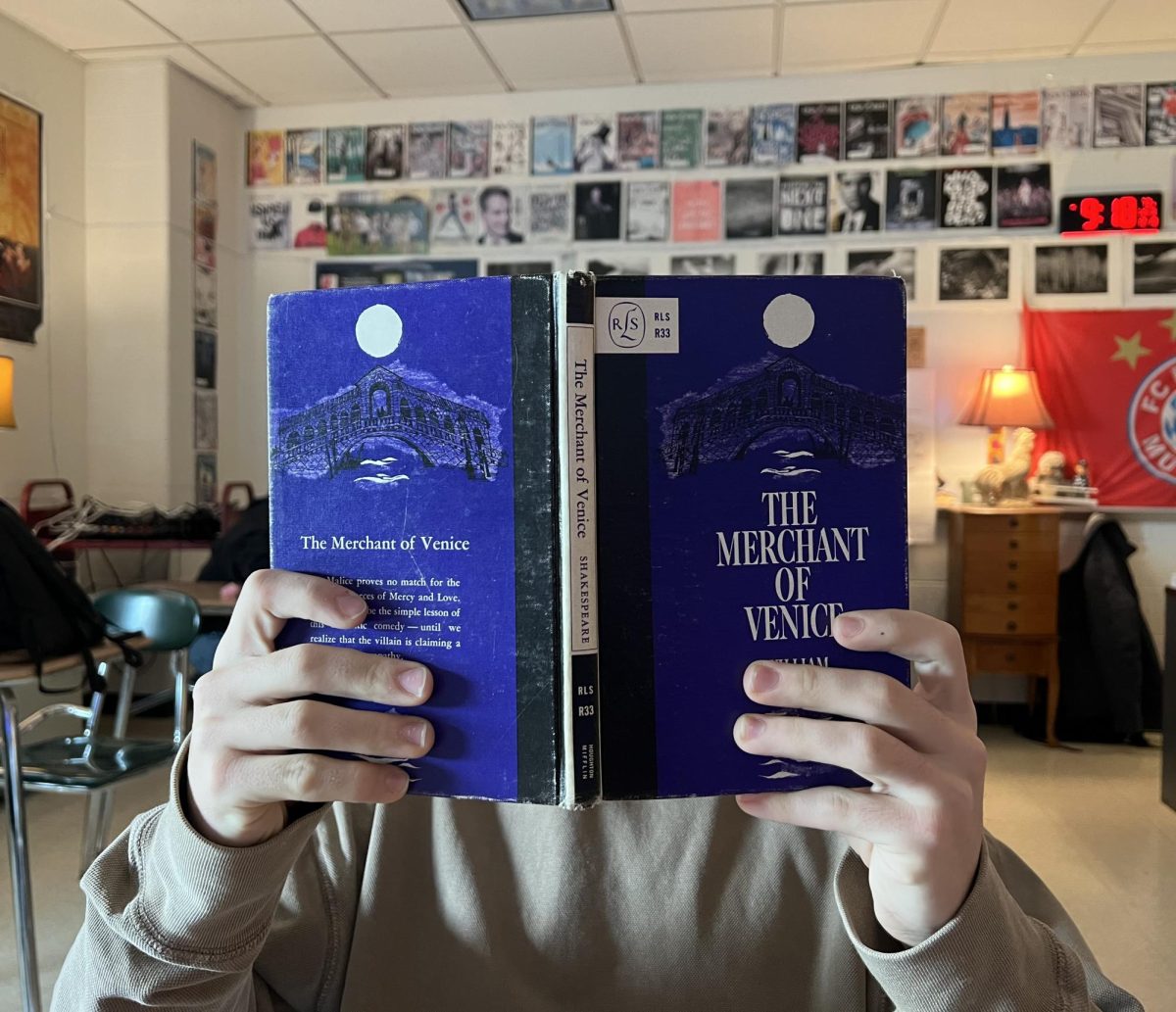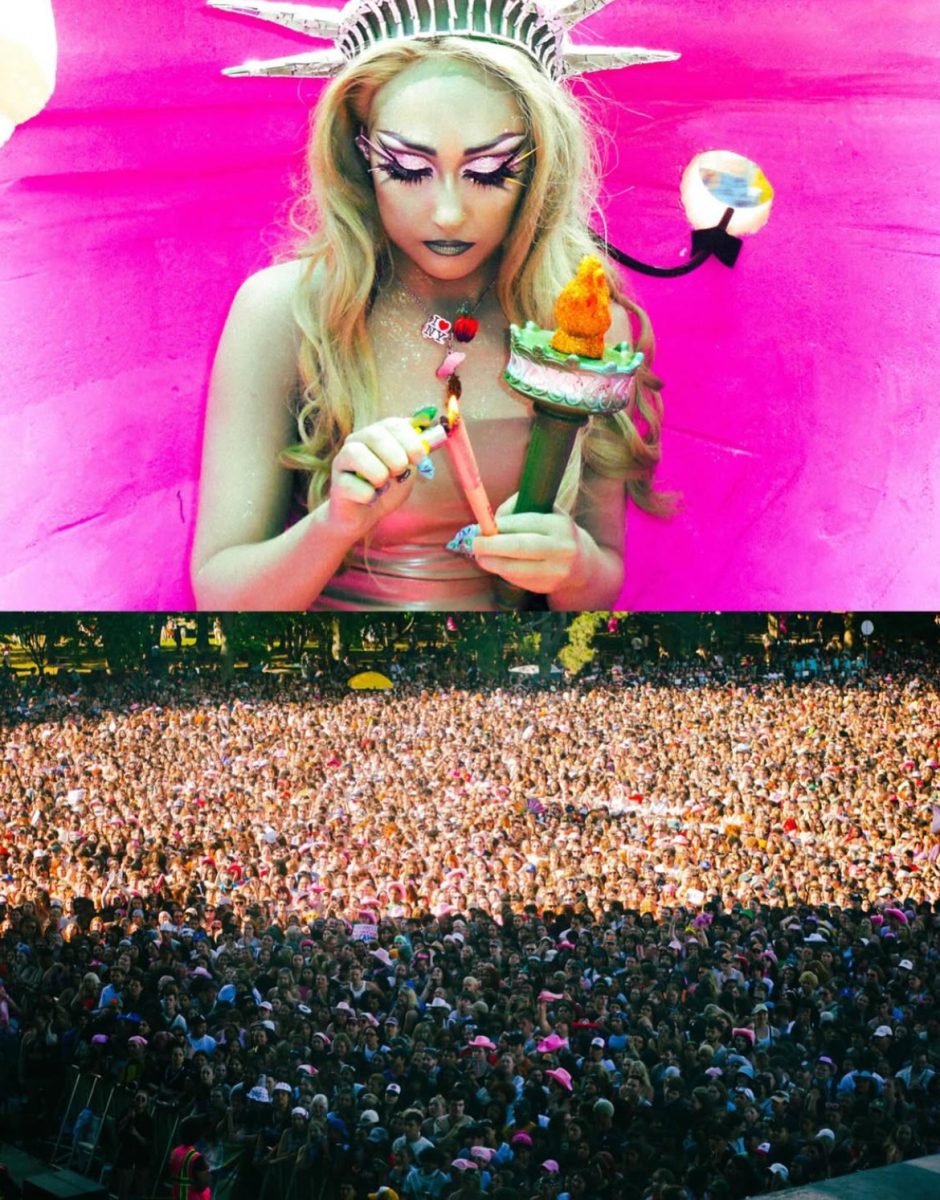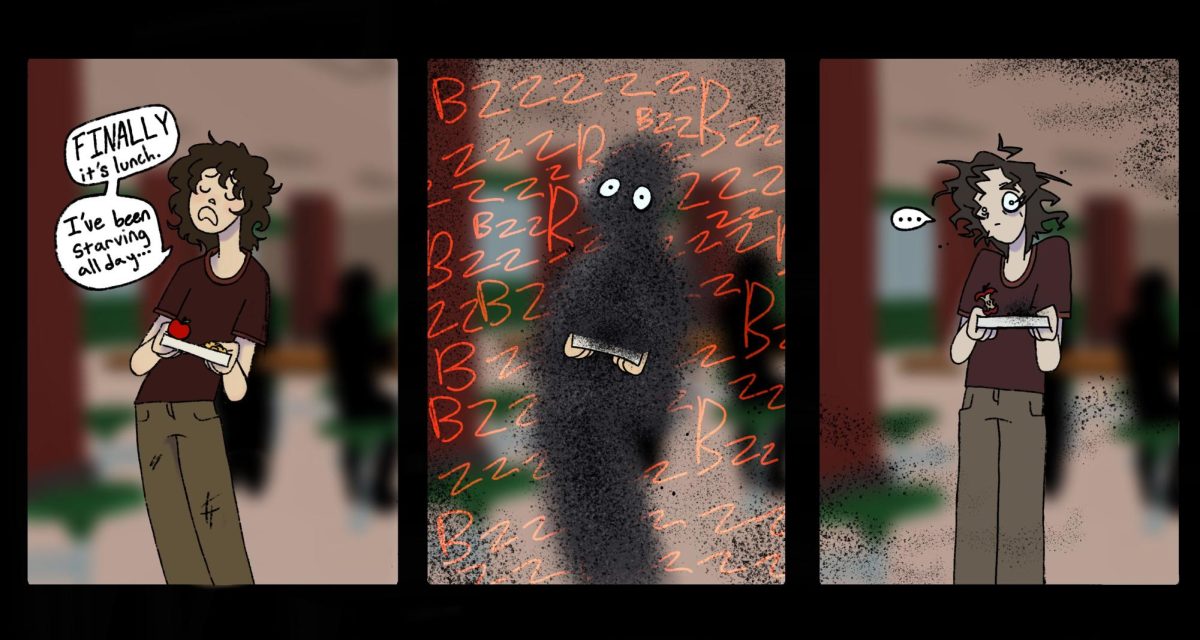In 2023 a group of DHS students petitioned the English Department to stop teaching Agatha Christie’s 1939 novel And Then There Were None. It takes but a quick Google search to discover the book’s original title is strikingly racist. Christie is an iconic, classic author, one of the founders of the mystery genre. However, the department concluded And Then There Were None doesn’t possess enough literary merit to continue assigning it.
This case was on my mind the entire time I read William Shakespeare’s The Merchant of Venice in AP Research. The play centers around the titular Christian merchant Antonio, whose friend hopes to travel to Belmont to woo the heiress Portia. In order to cover the expenses, Antonio takes out a 3,000 ducat loan from the Jewish moneylender Shylock. If Antonio does not pay Shylock back by an agreed upon date, Shylock will cut off a pound of Antonio’s flesh.
Spoiler alert: Antonio doesn’t pay Shylock back on time. But the moneylender doesn’t get his promised pound. Instead, the case goes to court, with a disguised Portia serving as Antonio’s lawyer. Her hair-splitting interpretation of the law results in two punishments for the defendant. Shylock’s wealth must be divided between the state and Antonio, and Shylock must convert to Christianity.
Shylock’s sentence embodies the controversy surrounding Merchant. Some read the play as antisemitic, while others feel there is more nuance behind the prejudice.
In every scene he’s in, Shylock is bombarded with a constant stream of bigoted insults. He’s called the Devil and a dog, as well as spat on in public. Even if it’s historically accurate that Jews used to be limited to banking jobs, Shylock’s depiction as a penny-pinching moneylender only reflects the notorious caricature.
That’s what makes Shylock’s forced conversion so brutal. After all the abuse he suffers, he’s stripped of his identity as the Christians run away with their newfound loves, reveling in their cunning and greatness.
DHS English Department head Will Higgins explained there are “some readings [of Merchant] that are anti-Christian. The Christians in that play are just as scandalous, as dishonest, as harmful as anyone else.” Therefore, rather than writing an attack on Jews, Shakespeare crafted a critique on the hypocrisies of believers.
Shylock’s famous “Hath not a Jew eyes?” speech undoubtedly humanizes him for the audience. The tragicomedy of Merchant also allows for some flexibility: the hate thrown at Shylock can either be played for sympathy or laughs. Post-Holocaust portrayals of Shylock often depict him as a victim destroyed by Christian oppressors. However, it’s remarkably easy to glorify the Christian characters and use the text as a vessel to foster anti-Jewish sentiment, as the Nazi Party did in the buildup to World War II.
If you read the text the way my class did—either by yourself or with a couple of friends, with barely any stage direction to give you hints about the characters’ tone—you’re staring at pages of blunt prejudice. No matter how much nuance I tried to apply to the text, I found it difficult to work past that and appreciate this as another one of Shakespeare’s grand works.
Perhaps that’s because it isn’t? Antisemitic or not, The Merchant of Venice is a clunker in Shakespeare’s catalogue. The characters are one-trait wonders, unaided by the disjointed plot that provides you with no time to get to know them. One scene you’re in Venice with Antonio and Shylock. The next you’re in Belmont with Portia’s multitudes of suitors, who deliver long-winded monologues debating which casket they should choose to win her hand in marriage. After that: pages upon pages of Launcelot pranking his blind father into believing he’s dead. Later on the newlyweds engage in a petty, drawn-out squabble over ring-related drama (that could’ve been easily avoided).
Oh, but Annica, what about those gorgeous passages about mercy and justice? These themes are shoved into the courtroom scene in the penultimate act and are barely touched upon anywhere else in the play. This gives the whole text a shallow feel.
Ultimately, Merchant is a tale of wistful, melodramatic rich people facing low stakes, and you’re presented with scant reasons to make you want to root for them. If it was published today, Merchant would be viewed as a clunky, lowbrow soap opera.
Now imagine that on top of all of that, one of the few minority characters is called the Devil every time he enters a scene. It comes across as tasteless.
My AP Research class could name plenty of reasons not to teach Merchant, but struggled to come up with reasons why it should be taught. Maybe, we wondered, Merchant opens up a conversation about antisemitism relevant in the face of the Israel-Hamas Conflict? Sure, but there’s an abundance of better books with genuine artistic value that tackle antisemitism—several of which were written by Jewish authors. The freshman class, for example, reads Elie Wiesel’s Night. The harrowing, unrelenting memoir details the author’s experience in the Auschwitz and Buchenwald concentration camps.
Well, in that case, we thought, perhaps students should read Merchant because it exposes them to a challenging, higher level text. That’s valid. However, if English teachers are going to make students labor through Shakespeare’s language, they should at least provide them with a story that’s worth their time and effort.
My older brother read Shakespeare’s Julius Caesar in his senior English class at GNB Voc-Tech, and I’ve never seen a text captivate and inspire him so greatly. He would deliver impassioned monologues to my family about the play’s use of rhetoric and political themes, which he saw reflected in modern day America. In fact, he told me navigating the politicians’ rhetoric in Caesar is a lesson in media literacy—something every student could use nowadays.
When I asked Higgins what gives Merchant literary merit, he cited three reasons: Shakespeare’s use of poetry and language, his insights into humanity and human relationships, and the text’s two iconic, beautifully written speeches: “Hath not a Jew eyes?” and “The quality of mercy is not strained.” All of these aspects exist in every Shakespeare play in some shape or form. So, in this regard, The Merchant of Venice is not unique, and it wouldn’t be the end of the world if it was replaced by another text. I would nominate Julius Caesar. Higgins, however, believes we don’t read enough of Shakespeare’s comedies. Therefore, A Midsummer Night’s Dream, which he described as “really accessible,” could be the new fourth Shakespeare play.
We shouldn’t avoid controversial texts purely because they contain controversy. But we should avoid substandard texts. There isn’t enough merit in The Merchant of Venice to warrant its teaching—and the questions of antisemitism only harm its case.













